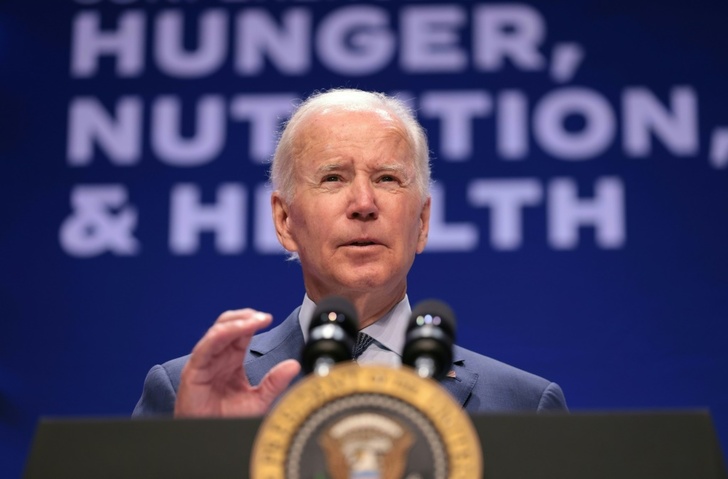The White House announced Wednesday billions of dollars in pledges from major corporations -- including the likes of fast food behemoth Burger King -- to craft a national strategy on ending the twin US challenges of hunger and obesity.
The private sector pledges were unveiled as President Joe Biden hosted what the administration touted as the first big White House summit on food and diet since Richard Nixon was in office more than half a century ago.
Nearly 42 percent of American adults are technically obese and about 10 percent of US households suffer food insecurity, according to the latest government statistics.
Biden told the White House Conference on Hunger, Nutrition, and Health that government, Congress, private companies and society must work together to end hunger and reduce diet-related diseases in the United States by 2030.
"If you can’t feed your child, what the hell else matters?" he asked the audience of Congress members, activists, health experts and food industry representatives including top chef and humanitarian Jose Andres. "In America, no child should go to bed hungry. No parent should die of disease that can be prevented."
Because Congress is unlikely to fund major federal dietary programs, Biden finds his hands largely tied. However, officials said he was using the power of the presidency to get major companies involved and that the response has been strong.
"We know that we can only achieve the goals... if we rally a whole of society response," a senior official said, speaking on condition of anonymity.
Officials briefing reporters said that $8 billion in public and private sector commitments already made include pledges from more than 100 organizations, ranging from hospitals to tech companies and food industry players.
"All have committed to bold and in some cases, paradigm shifting commitments that will meaningfully improve nutrition, promote physical activity, and reduce hunger and diet related disease over the next seven years," an official said.
- What's 'healthy'? -
The White House says that poor diets are behind ever-rising cases of diseases like type 2 diabetes, obesity, hypertension, and certain cancers, warning that "there is no silver bullet to address these complex issues, and there is no overnight fix."
One idea being pushed by the administration is to regulate the use of the term "healthy" on food packaging.
"More than 80 percent of people in the US aren’t eating enough vegetables, fruit and dairy. And most people consume too much added sugars, saturated fat and sodium," the US Food and Drug Administration said.
For now, the quickest response is coming from the private sector.
S2G investments, which champions "a more humane and healthy planet," and food industry innovation specialists Food Systems for the Future are set to launch a $2.5 billion private investor coalition over the next three years.
The National Restaurant Association will expand a project aimed at getting children to eat healthier food at 45,000 more outlets, including at chains like Burger King.
IT and communications giant Cisco will contribute $500 million over five years for healthier meals and food production in areas where it does business.
Officials acknowledged that there is no enforcement mechanism for the spending programs but "we will continue to certainly work closely with these partners to ensure they execute on the actions committed to."
sms/dw
© Agence France-Presse
Your content is great. However, if any of the content contained herein violates any rights of yours, including those of copyright, please contact us immediately by e-mail at media[@]kissrpr.com.
Source: Story.KISSPR.com

